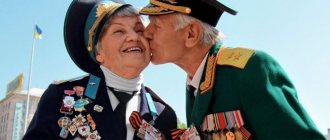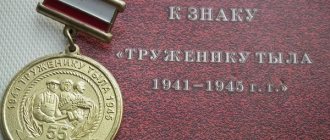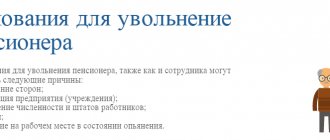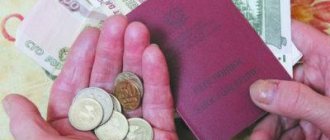Benefits for children of war
- Regular increase in pension once a month (from 400-900 rubles, depending on the decision of the regional municipal authorities);
- Reduced prices for housing and communal services;
- Free travel on public transport;
- Free landline phone connection;
- Issuance of free and discounted medications in state pharmacies;
- Preferential dentures made from certain materials;
- Reimbursement of costs for funeral services.
In addition to the basic privileges, there are additional benefits, namely:
- Monthly payments in the amount of 1000 rubles. (taking into account inflation, it is constantly indexed);
- Medical examination for medical reasons once a year;
- The opportunity to travel free of charge on state regional buses, electric trains and trains;
- Advantages when joining housing and dacha associations;
- Guaranteed admission to boarding schools or nursing homes without waiting in line;
- Extraordinary connection of a landline telephone.
Policy for providing benefits in the regions of the Russian Federation
To obtain the status of “Children of War” in regions that have adopted such programs, you must contact social services (most often at the regional level, this is done by the Department of Social Protection of the Population - USZN) with an application and a passport.
After considering the application and making a positive decision on it, the applicant will be provided with benefits and privileges prescribed in the legislation of the given region.
In the Samara region, this will be an opportunity to supply dentures at discounted prices (we are talking not only about budgetary medical institutions, but also paid dentistry).
In the Amur region, a monthly allowance is paid to war children in the amount of 600 rubles and discounted vouchers for sanatorium and resort treatment are provided, in the Belgorod region - an additional payment to the pension is 500 rubles every month + emergency installation of a landline telephone and placement in nursing homes without a queue.
In the city of Penza and the region there are preferential tariffs for utilities. An additional payment to the pension is only due to those who have it less than 2 times the subsistence minimum.
In the Krasnoyarsk Territory, the monthly supplement is small - 400 rubles ; on Victory Day, 1000 rubles are paid annually. In addition, discounted travel is guaranteed once a year to the burial place of a parent - a war hero.
In addition to the listed subjects of the Russian Federation, the status of “Children of War” and social support is defined in Adygea and Udmurtia, Buryatia, Mordovia, Nenets and Yamalo-Nenets Autonomous Okrug, Altai Territory and Vologda, Novosibirsk, Orenburg, Pskov regions.
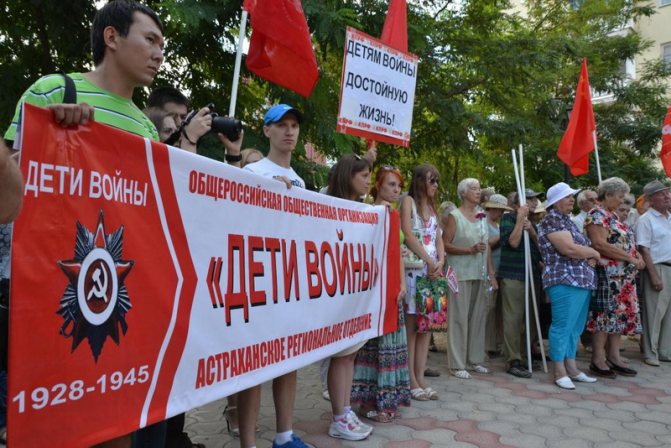
Problems of beneficiaries
It turns out that, theoretically, pensioners born during wartime have a number of benefits, but in fact there is not a single document to which they can appeal in order to officially claim them throughout Russia. The Council of State Duma Deputies has repeatedly tried to equate the rights of these citizens with home front workers, but all good impulses have been stuck in the project because there is supposedly not enough money in the budget for this.
As a result, all powers were transferred to local social protection authorities, which formalize them at their own discretion and discretion, often adding additional restrictive conditions. For example, in many regions, cases were recorded when, when asked who should be classified as “children of war,” the decisive factor turned out to be the fact that the loss of parents during this period must be a prerequisite. How legal this is is a controversial issue, but there is also no clear act. All this once again confirms the popular proverb “the law is that the drawbar, as you turn, so it turns out.” Today, only 20 regions have officially recognized the status of children of war.
Chapter III. FINAL PROVISIONS
Article 9. Public associations of children of war
1. In order to protect the rights and legitimate interests of children of war, public associations of children of war may be created in accordance with the legislation of the Russian Federation.
2. Federal government bodies, government bodies of constituent entities of the Russian Federation and local government bodies provide assistance to the activities of public associations of war children.
3. Decisions on issues of social support for war children and the activities of public associations of war children are made by federal government bodies, government bodies of constituent entities of the Russian Federation and local governments with the participation of representatives of the relevant associations of war children.
Article 10. Responsibility for non-execution or improper execution of the legislation of the Russian Federation on the social protection of children of war
Officials of federal government bodies, government bodies of constituent entities of the Russian Federation and local government bodies, in accordance with the legislation of the Russian Federation, are responsible for non-compliance or improper implementation of the legislation of the Russian Federation on the social protection of war children.
Article 11. Judicial protection of the rights of children of war
Children of war have the right to go to court for protection of the rights established by this Federal Law, other federal laws and other regulatory legal acts of the Russian Federation, laws and other regulatory legal acts of the constituent entities of the Russian Federation and social support measures.
Article 12. Documents confirming the rights of children of war
The implementation of social support measures for children of war is carried out upon their presentation of uniform certificates established for the category of children of war by the Government of the Russian Federation.
Article 13. Entry into force of this Federal Law
This Federal Law comes into force on January 1, 2015
President of Russian Federation
ADDITION:
How to deal with such an ambiguous situation
In any case, every citizen who falls under the status of “child of war” should submit an application to the social protection authorities. According to the unapproved law, the only documents you will need are a passport. But this will only work for the lucky ones who are included in the list of those very conscious 20 regions.
If this is “unheard of” in your region, there is another way out. As a rule, all war children worked for six months or more, which means that they are at the same time home front workers whose rights are clearly stated. A passport identification document, all accompanying wartime papers, orders and medals for services to the Fatherland will help confirm this status; insignia “for the defense of Leningrad” will also serve as a good help in asserting the rights.
But if you are already a disabled person or a WWII veteran, or a member of the family of a deceased WWII disabled person, and also a child of the war, you will have to choose the type of benefit; you won’t be able to get everything at once.

Bill “Child of War”
The bill, which is called “On Children of War,” has not yet been adopted. Although it has been included in the development of the Communist Party of the Russian Federation for several years in a row, or rather since 2013. Until 2020, the project was regularly rejected at meetings. However, this year they announced the possibility of its adoption. Let us recall that children of war are people born after June 22, 1927 and before 1945, while living on the territory of the USSR.
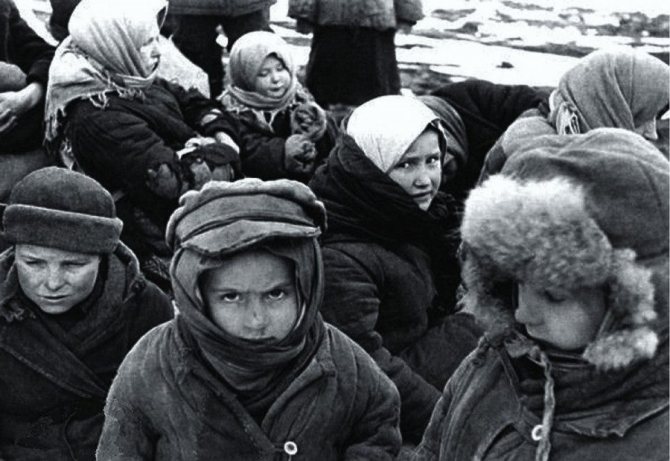
As an Express-Novosti correspondent noted, the bill being developed will apply to citizens who survived the hardships of the war and helped on the home front, but did not take direct part in it. In addition to citizens of the Russian Federation, the bill also includes persons who permanently reside without citizenship, as well as foreigners. But those who were in prison during the Second World War will relate to this bill.
In order to confirm the status of “child of war” and be able to obtain the appropriate certificate, citizens will need to submit a special application with a whole list of documents confirming membership in the selected group. There may be some confusion with documents at first, because there is not yet a single established sample of forms, applications or extracts from archives. Therefore, today they are made in free form, reflecting the main essence.
The new law plans to include not only tax, medical and housing benefits, but also transport benefits. It is noteworthy that this will apply not only to public transport, but also to the use of railways or air routes. However, the adoption of this law does not cancel previous preferential statuses. Consequently, if a “child of war” already enjoys subsidies of some other status, then he will not have new benefits or additions.
If the bill actually comes into force, almost 13 million pensioners will be able to receive additional benefits and funding that will allow them to feel comfortable in the modern world. Many pensioners in regions where such programs have already been introduced do not want to once again bother their relatives with worries, and take advantage of the opportunities for preferential medical care. Some even take advantage of the right to be admitted to nursing homes out of turn in order to receive constant medical care without burdening their relatives.
How much to wait
Since the issue is not regulated by law, in reality the registration process does not go very quickly. Only 20 regions recognized the rights of children of war.
Obtaining status occurs in several stages:
- Preparation of documents (in reality, for some reason, one passport is not enough), an original and a copy of the document are required, plus a 3x4 photograph;
- Submitting an application, to do this you need to come to the Center for Social Protection of the Population and submit an application in free form; if you are required to fill out the appropriate form, this may be considered a violation of rights. The application can be written arbitrarily, the main thing is that it must necessarily contain information: the applicant’s full name, the correct name of the organization to which the documents are being submitted, residential address, communication contacts and a mention of the status itself in the “child of war” petition. If for some reason an elderly person cannot write a petition on his own, his relatives, for example, sons or grandchildren, have every right to do this for him.
- Receiving a response from social security in the form of a certificate stating that the application was accepted and the process of its consideration has begun. Social security workers have the right to closely examine it within 30 days.
- If the case was decided in favor of the applicant, after a month, he will receive a certificate.

Who belongs to the category of children of war?
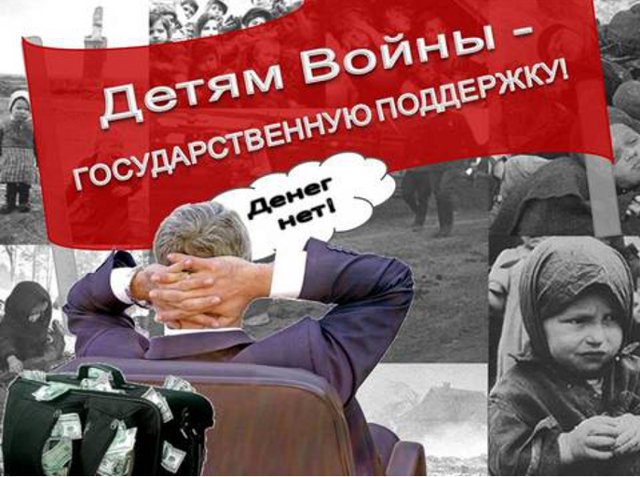
There is still no clear resolution today regulating the rules and amounts of payments for this category of citizens, but there is a definition.
The category of “children of war” includes people born between June 22, 1928 and September 3, 1945, who necessarily lived in the territory of the former Soviet Union all this time. The exception is for citizens who, for any reason, are serving or have already completed a prison term; they are deprived of all privileges:
- Regular increase in pension once a month (from 400-900 rubles, depending on the decision of the regional municipal authorities);
- Reduced prices for housing and communal services;
- Free travel on public transport;
- Free landline phone connection;
- Issuance of free and discounted medications in state pharmacies;
- Preferential dentures made from certain materials;
- Reimbursement of costs for funeral services.
In addition to the basic privileges, there are additional benefits, namely:
- Monthly payments in the amount of 1000 rubles. (taking into account inflation, it is constantly indexed);
- Medical examination for medical reasons once a year;
- The opportunity to travel free of charge on state regional buses, electric trains and trains;
- Advantages when joining housing and dacha associations;
- Guaranteed admission to boarding schools or nursing homes without waiting in line;
- Extraordinary connection of a landline telephone.
Problems of beneficiaries
It turns out that, theoretically, pensioners born during wartime have a number of benefits, but in fact there is not a single document to which they can appeal in order to officially claim them throughout Russia.
The Council of State Duma Deputies has repeatedly tried to equate the rights of these citizens with home front workers, but all good impulses have been stuck in the project because there is supposedly not enough money in the budget for this.
As a result, all powers were transferred to local social protection authorities, which formalize them at their own discretion and discretion, often adding additional restrictive conditions.
For example, in many regions, cases were recorded when, when asked who should be classified as “children of war,” the decisive factor turned out to be the fact that the loss of parents during this period must be a prerequisite. How legal this is is a controversial issue, but there is also no clear act.
All this once again confirms the popular proverb “the law is that the drawbar, as you turn, so it turns out.” Today, only 20 regions have officially recognized the status of children of war.
How to deal with such an ambiguous situation
In any case, every citizen who falls under the status of “child of war” should submit an application to the social protection authorities. According to the unapproved law, the only documents you will need are a passport. But this will only work for the lucky ones who are included in the list of those very conscious 20 regions.
If this is “unheard of” in your region, there is another way out. As a rule, all war children worked for six months or more, which means that they are at the same time home front workers whose rights are clearly stated.
A passport identification document, all accompanying wartime papers, orders and medals for services to the Fatherland will help confirm this status; insignia “for the defense of Leningrad” will also serve as a good help in asserting the rights.
But if you are already a disabled person or a WWII veteran, or a member of the family of a deceased WWII disabled person, and also a child of the war, you will have to choose the type of benefit; you won’t be able to get everything at once.
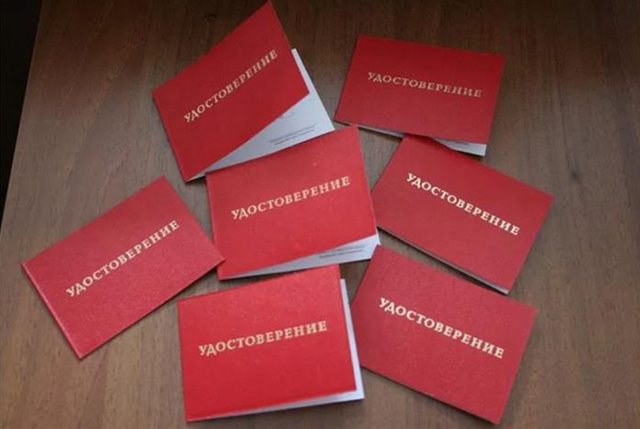
How much to wait
Since the issue is not regulated by law, in reality the registration process does not go very quickly. Only 20 regions recognized the rights of children of war. Obtaining status occurs in several stages:
- Preparation of documents (in reality, for some reason, one passport is not enough), an original and a copy of the document are required, plus a 3x4 photograph;
- Submitting an application, to do this you need to come to the Center for Social Protection of the Population and submit an application in free form; if you are required to fill out the appropriate form, this may be considered a violation of rights. The application can be written arbitrarily, the main thing is that it must necessarily contain information: the applicant’s full name, the correct name of the organization to which the documents are being submitted, residential address, communication contacts and a mention of the status itself in the “child of war” petition. If for some reason an elderly person cannot write a petition on his own, his relatives, for example, sons or grandchildren, have every right to do this for him.
- Receiving a response from social security in the form of a certificate stating that the application was accepted and the process of its consideration has begun. Social security workers have the right to closely examine it within 30 days.
- If the case was decided in favor of the applicant, after a month, he will receive a certificate.
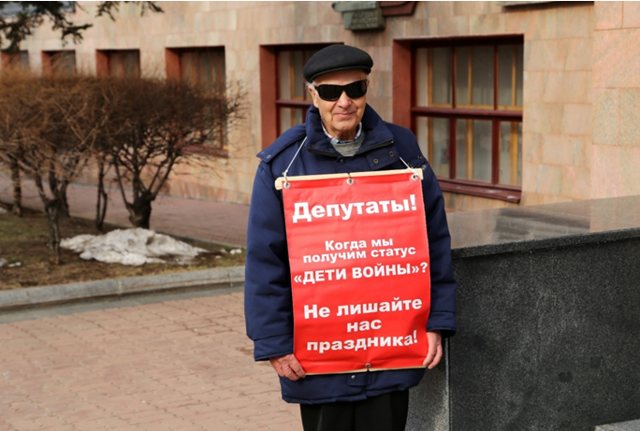
And laughter and sin
Along with useful benefits, the state announced a number of benefits that cause, if not laughter through tears, then unambiguous bewilderment. Three "leaders":
- The advantage of holding your current position when there is a staff reduction. Incidentally, if we take into account the average age of war children, they are at least 71 years old.
- Possibility to take vacation at a convenient time. I wonder how many working pensioners over 70 have officials seen?
- Opportunity to obtain land to build a house/dacha without waiting in line. Probably 70+ is the most suitable age to start building a cottage.
Conclusion
Despite the fact that the children of the war did not fight, they actually did not see childhood, they did not have enough food and toys. They spent all their young years in terrible conditions and social work for the good of the country, and therefore deserve better conditions, at least in today’s time.
This year, the state has planned to allocate 135 billion rubles from the budget to adequately provide benefits to war children. We can only hope that there will be fewer incidents and useless letters, and more work to do, and the old people, who experienced the hardships of the war period in their youth and youth, will spend the rest of their lives in peacetime with dignity.
And laughter and sin
Along with useful benefits, the state announced a number of benefits that cause, if not laughter through tears, then unambiguous bewilderment.
Three "leaders":
- The advantage of holding your current position when there is a staff reduction. Incidentally, if we take into account the average age of war children, they are at least 71 years old.
- Possibility to take vacation at a convenient time. I wonder how many working pensioners over 70 have officials seen?
- Opportunity to obtain land to build a house/dacha without waiting in line. Probably 70+ is the most suitable age to start building a cottage.
Conclusion
Despite the fact that the children of the war did not fight, they actually did not see childhood, they did not have enough food and toys. They spent all their young years in terrible conditions and social work for the good of the country, and therefore deserve better conditions, at least in today’s time. This year, the state has planned to allocate 135 billion rubles from the budget to adequately provide benefits to war children. We can only hope that there will be fewer incidents and useless letters, and more work to do, and the old people, who experienced the hardships of the war period in their youth and youth, will spend the rest of their lives in peacetime with dignity.
Registration of additional payment for children of war
Before applying for a pension supplement, you need to find out which body to contact and study the rules for drawing up an application. At the initial stage, a citizen will need to visit the social security department and find out whether benefits are provided in the region of residence.
In addition, employees of the specified authority will inform you what documents need to be collected when making an additional payment. B papers are used to confirm the status of a child of war.
A month is allotted for consideration of the application. Then social security officials make a reasoned decision. The response is sent to the applicant in the form of a letter.
Important! Depending on where the pensioner lives, the rules according to which the application is made to the social security department or to the local administration may change. In the latter case, it is assumed that the person lives in a small locality.
If a citizen belongs to several groups of beneficiaries
A situation may arise in which a person has the right to receive preferences for various reasons. Then the beneficiary has the opportunity to choose which privileges to use.

As a rule, a payment is assigned that has a larger monetary value. When applying for benefits, you must indicate the type of benefit used.
What documents to collect to apply for additional payments to war children?
Often, social security authorities do not have a specific employee who is responsible for processing benefits. Therefore, documentation can be accepted by any employee of this body. A specially created commission will consider the acts.
Often a positive answer can be obtained, provided that all the papers have been collected.
Including:
- a document by which the identity of a citizen is verified;
- an application drawn up according to the established template;
- certificate confirming the birth of children.
, a certificate issued by the archive can be used . This applies to a situation where a citizen has lost his birth certificate.
How to write an application for additional payment to a child of war
The document must be addressed to the head of the social protection department.
The header states:
- the position of the person to whom the act is sent, as well as personal information about him;
- details of the citizen who is requesting payment. You will need to indicate your last name and initials, residential address, SNILS and contact phone number so that the person can be contacted.
The main part of the document must describe the request for the status of a child of war. The law that is the basis for granting such a preference will need to be reflected.
It is mandatory to give consent to data processing. At the end of the act, the date of formation and the signature of the beneficiary are placed.
